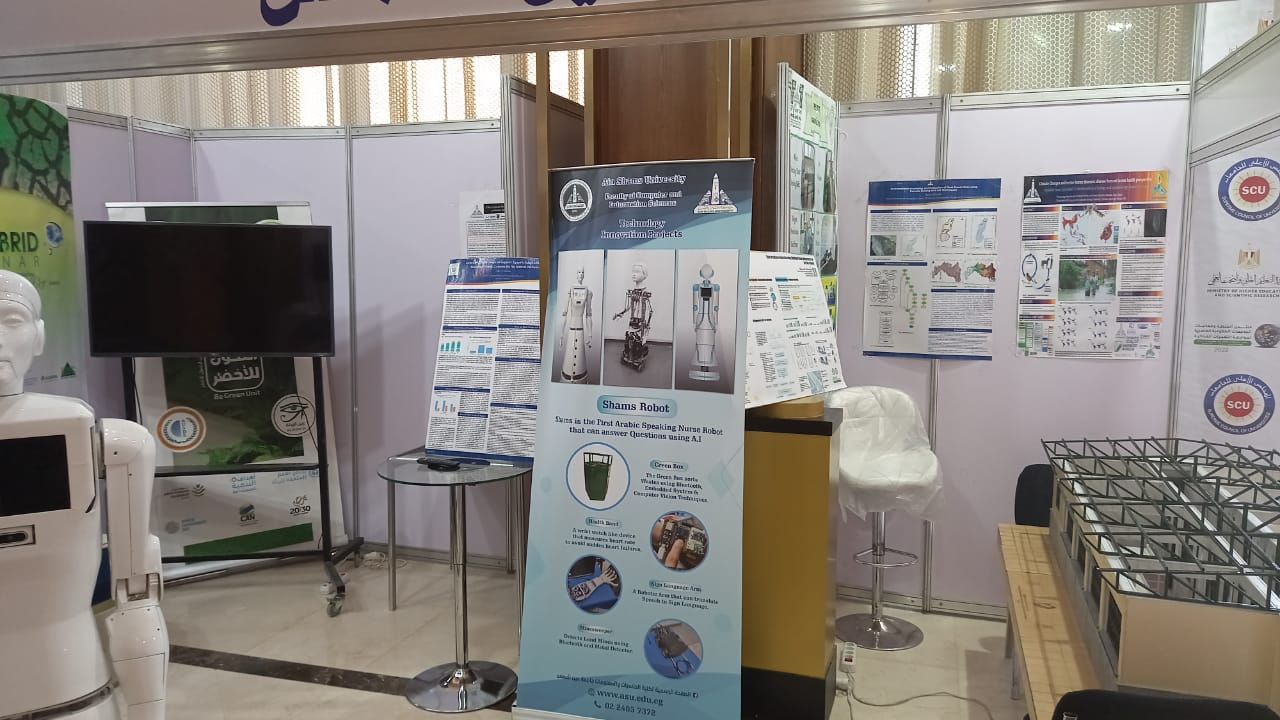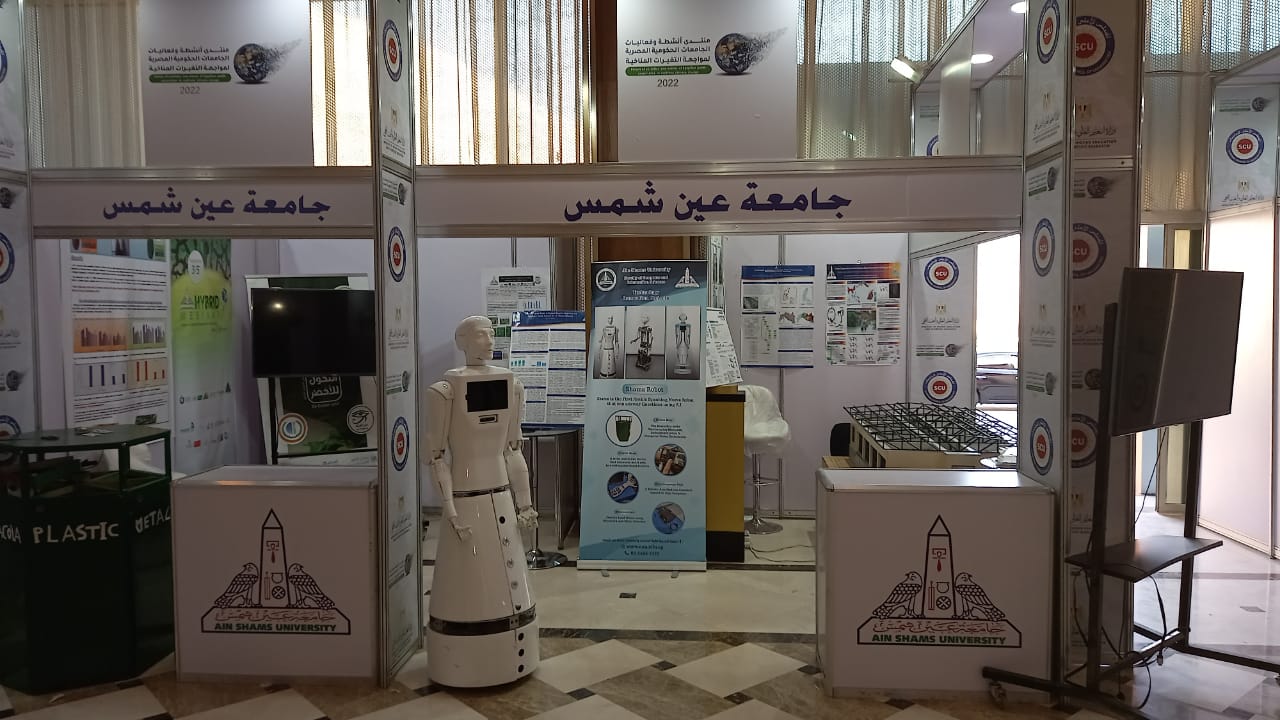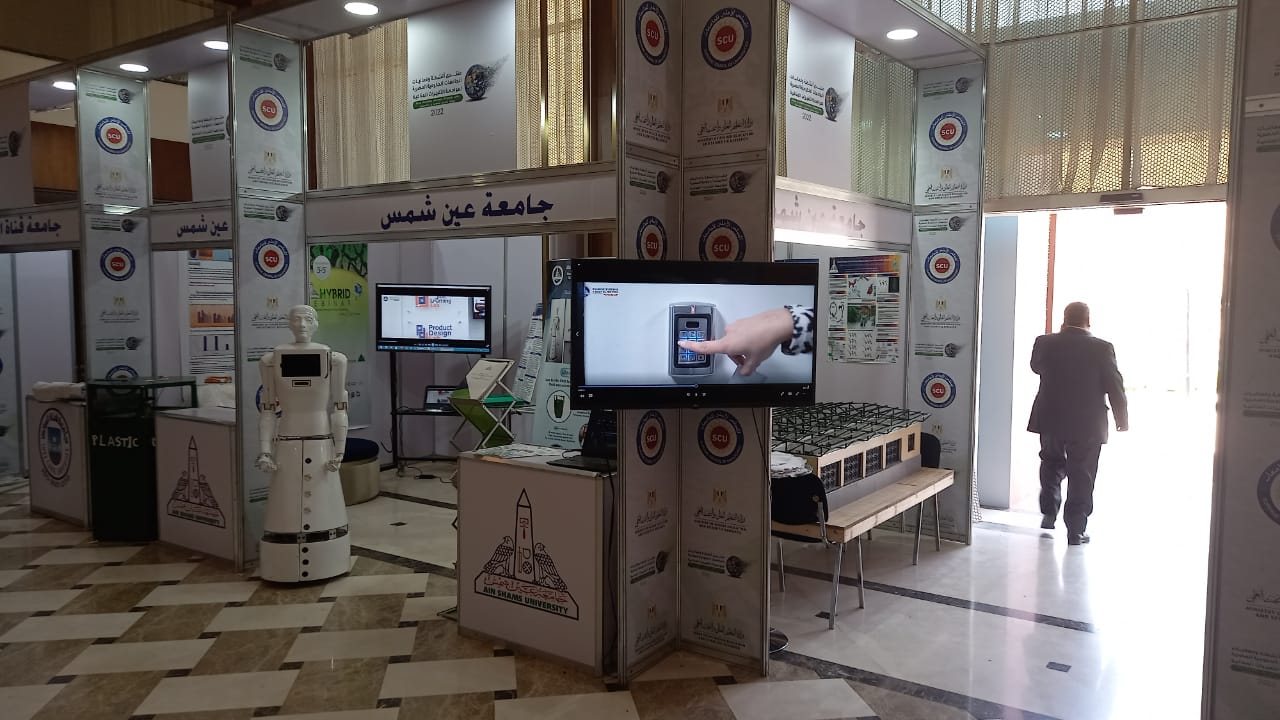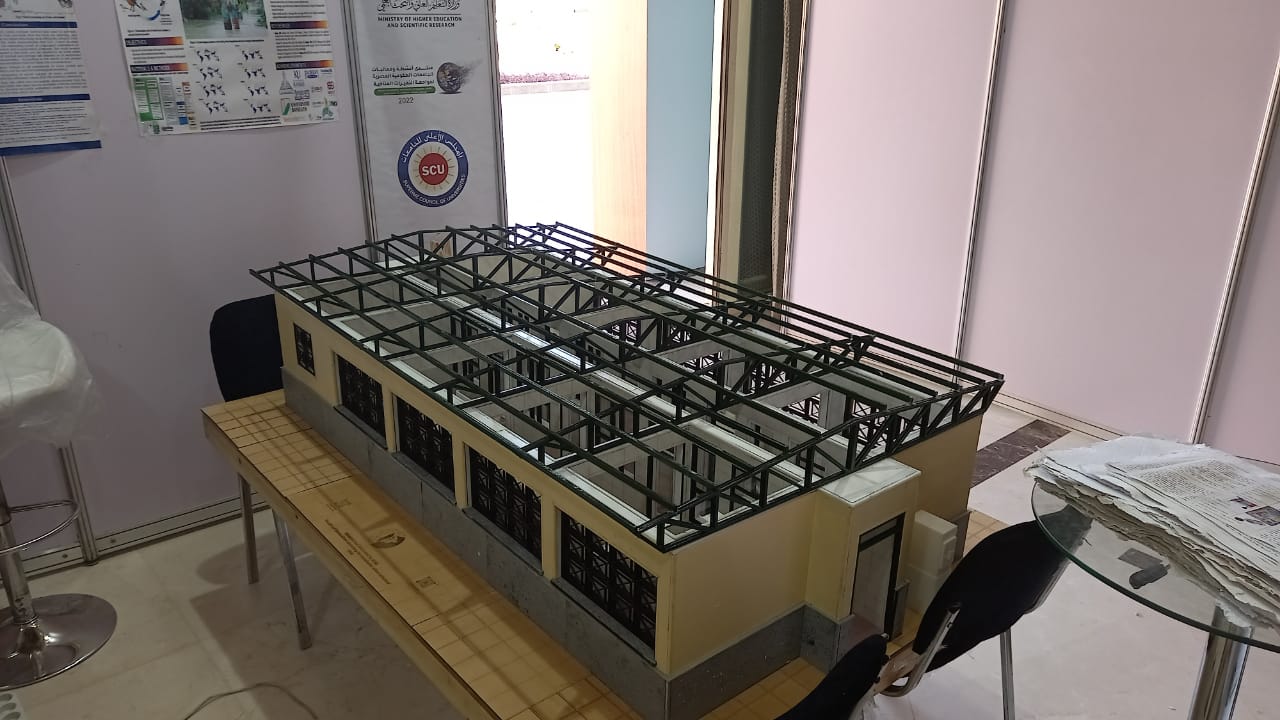With the participation of a delegation of Ain Shams University, a Forum for Activities and Events of Egyptian Public Universities to Confront Climate Change was launched
Sponsored by Dr. Ayman Ashour, Minister of Higher Education and Scientific Research, a forum for the activities and events of Egyptian public universities to confront climate changes, was launched which is hosted by Suez University headed by Dr. Al-Sayed Al-Sharkawi, during the period from 22 to 23 September, under the supervision of the Supreme Council of Universities, with the secretariat of Dr. Muhammad Latif, and in the presence of Dr. Yasser Refaat, Deputy Minister for Scientific Research Affairs, Dr. Mahmoud Sakr, President of the Academy of Scientific Research and Technology, Ambassador Hisham Badr, General Coordinator of the National Initiative for Smart Green Projects, Chairman of the Organizing Committee at the Ministry of Planning and Economic Development, university presidents, and a group of academic leaders and representatives of a number of authorities concerned with the climate change file.
The forum aims to highlight the importance of integration between Egyptian public universities in preserving the environment and sustainable development, and to find mechanisms for regional integration in facing the negative effects of climate change.
 |
 |
|
The forum also aims to support research and development in applied projects related to the axes of climate change and the development of scientific research in the management of new and renewable energy, energy efficiency and methods of consumption, in addition to integration with various parties to limit climate changes, and enhance Egypt's role in the file of climate changes worldwide.
The forum highlights the activities of public universities in the field of climate change, and presents a set of advanced research topics carried out by scientists in public universities in this important field, in addition to presenting research models and applied projects related to the axes of climate change.
It is worth noting that the establishment of the forum comes in light of the global trend to pay attention to climate change and its challenges facing the world, and in light of Egypt's Vision 2030, which includes attention to all axes of sustainable development, foremost of which is facing the climatic effects of climate change.
On the sidelines of the forum, an exhibition will be held containing models of applied projects from Egyptian public universities related to the axes of climate change, as well as applied research posters from public universities related to the axes of climate change.
In this context, Ain Shams University presented a set of projects that were presented during the activities and events of the Egyptian government universities forum to confront climate change, where the College of Graduate Studies and Environmental Research submitted the Shams be green project for waste recycling, which is an educational project for students about the techniques of green transformation and waste recycling. It was established by the Faculty of Graduate Studies and Environmental Research, Ain Shams University under the leadership of Prof. Dr. Noha Samir Donia, Dean of the Faculty.
 |
 |
|
It is worth mentioning that the project includes 8 units for waste recycling, which are a unit for compressing solid waste from plastic and cans, a waste sorting unit, a sorting belt, a unit for the production of organic fertilizer from organic waste vermicomposting, a unit for the production of biogas from organic waste, a unit for the production of electricity from solar energy, and a unit for the production of electricity From wind, paper recycling unit and plastic to fiber unit, the project was set up as an applied model for circular economy techniques, use of clean energy, rationalization of water consumption and recycling of all kinds of waste.
The Faculty of Science presented projects that dealt with an important issue to study the effects of climate change on the spread and epidemiology of infectious diseases.
This project aims to track the spread and dynamics of infectious diseases as a result of the impact of climate change to develop strategies that identify disease outbreaks and control priorities, and also aims to provide these maps through a platform for early prediction of the spread of diseases and their vectors.
The Faculty of Science also presented a project on the use of innovative methods for cultivating strategic crops such as wheat in Egypt to achieve food self-sufficiency. Through this project, the Ain Shams University team succeeded in cultivating Egypt 1 and Gemma 11 in highly saline lands in Fayoum, where the experiment succeeded in increasing crop production by a range of Between 40 to 50 percent, and the research team is currently working on applying the experiment on a larger scale, targeting places in Egypt that suffer from salinity problems in water and soil, such as Moghara and the northern coast in Alexandria, and working to introduce plasma technology used as national security in Egypt to support mega projects.
The College of Engineering also presented a project to preserve the Egyptian heritage using virtual reality technology; Where virtual reality technology is involved in various fields, the most important of which is the preservation of heritage by documenting antiquities in historical places using modern document methods such as three-dimensional scanning, which was able to save a digital copy and display it on various virtual reality platforms, allowing the user to roam and deal with the ocean within a digital copy. The original without the need to delve into the challenges of location and climate, and the preservation of the trace in the current situation in a digital copy is not affected by erosion factors, natural disasters and accidents.
The college also presented the ASUWind turbine, which won first place in the award for the highest annual energy production in the international competition for small wind turbines for university students, which is held annually in the Netherlands at Delft University laboratories with the participation of 10 universities from the Netherlands, Germany, Poland, Denmark, Canada and Egypt. Design and implementation of wind turbines through the Energy Technology and Climate Change Laboratory under the supervision of Prof. Dr. Tamer Mohamed Al-Nadi, Prof. Dr. Adel Sabbagh.
The College of Computer and Information Sciences presented the "Green Box" project, which is an automated waste sorting system designed to facilitate waste classification for recycling companies, waste collectors, or even personal use. The system uses computer vision algorithms and artificial intelligence to carry out its tasks. The project helps private companies collect their empty packaging for recycling and use. The team has developed a plan to develop the project in the future to achieve in all its dimensions the sustainable development goals.
Prof. Dr. Eman Mokhtar and Prof. Dr. Ahmed Galal from the College of Agriculture presented a project on biological treatment and desalination of wastewater and saline water, where AZ-1 & EMA are biological compounds, safe, economical and effective for sewage treatment; The water produced from these treatments conforms to the recommended international and local specifications and is used to irrigate crops again, and these two compounds are internationally patented, while the two compounds AZ-2 & AZ-3 are used for the effective and economic biological desalination of medium and high salinity water, and now under International registration, and both of these compounds achieve the 2030 strategy goals to provide alternative and non-conventional sources of water that can be used to irrigate crops again.
In addition to a research that aims to propose a methodology for the optimal use of green elements, especially afforestation that works on natural conditioning and shades the external spaces and open spaces in order to avoid the severe consequences of climatic change and its negative impact on urban environments and human health, and different ways have been studied to distribute the proportions of trees of different types using simulation programs And field measurement, in light of integration with the sustainable development goals, Egypt’s National Climate Change Strategy 2050, Egypt’s Vision 2030, in addition to researching flood risk management using GIS and remote sensing to predict the amount of torrential rains and the best places to collect torrential water in Sinai and the North Coast.
.svg)




